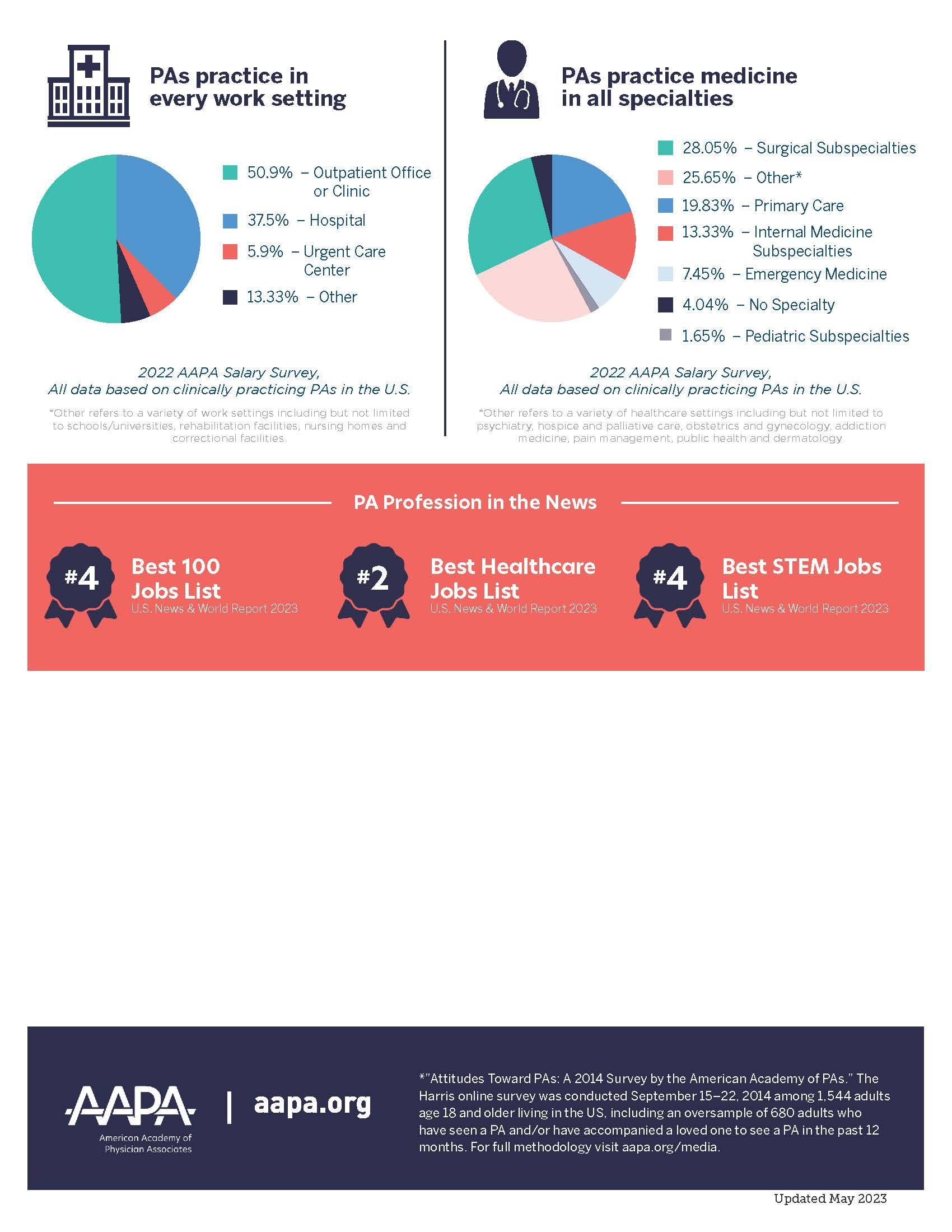Physician Assistant Resources
What is a PA?
[1688405444].jpg)

AAPA
PA Licensure and NCCPA Certification
Post Graduate Training
According to the Association of Post-Graduate Physician Assistant Program, Employment opportunities and roles for PA's are rapidly expanding to include a high proportion of specialty areas. The PAEA Annual Report reports the following distribution of PA's by specialty as:
Specialty Area % of PA's employed in specialty area:
- Family / General Medicine 36%
- General Surgery & Surgical Subspecialties 20%
- Internal Medicine and IM subspecialties 17%
- Emergency Medicine 10%
- Pediatrics 4%
- OB/GYN 3%
- Other 10%
Because of this diversity and specialization, formal postgraduate training is assuming a greater importance as an adjunct to PA primary care education. Postgraduate curriculums are designed to build upon the knowledge and experience acquired in PA school enabling the PA to competently assume a role as physician assistant on a specialty health care team. Many postgraduate programs have pioneered the role of the PA in these specialty areas and offer experienced role models as well as formalized instruction.
Information about postgraduate PA educational opportunities is available to students and graduate PAs interested in the medical specialties at the Association of Post-Graduate Physician Assistant Programs website. Applications and further information may be obtained by contacting individual postgraduate programs.
Local Health Care Systems and Education Partners
- Ascension Healthcare
- Corewell Health - West
- Corewell Health - Southeast
- Helen DeVos Children's Hospital
- Holland Hospital
- McLaren Healthcare
- Munson Healthcare
- MyMichigan Medical Center Sault
- Trinity Health - Grand Rapids
- Trinity Health - Muskegon
- University of Michigan Health-West
- UP Health System - Marquette
- Zeeland Hospital
